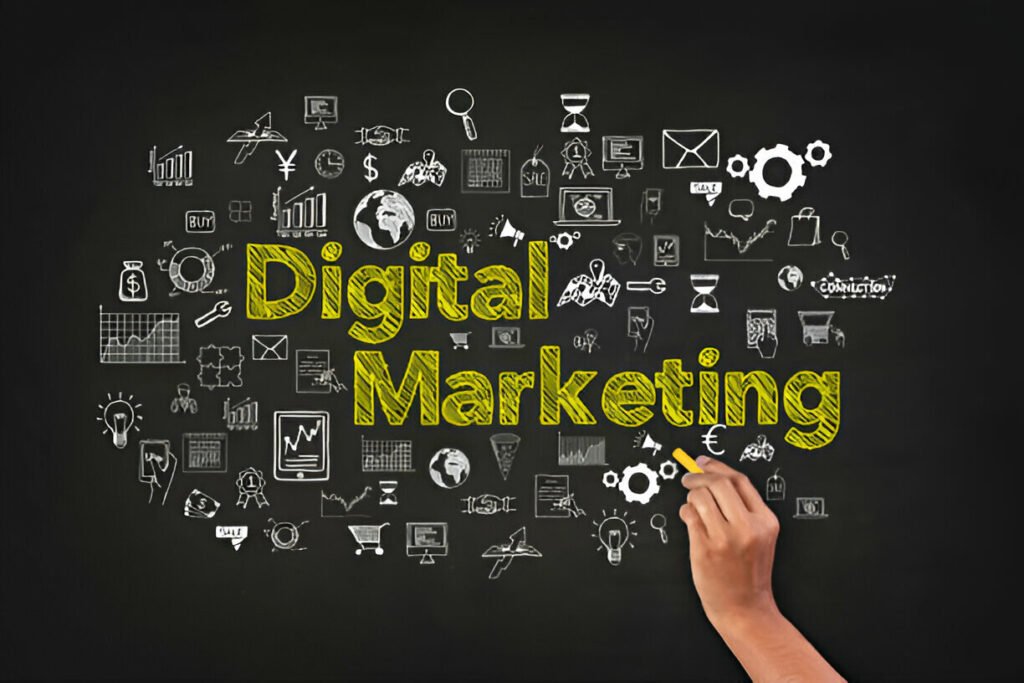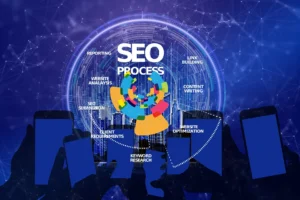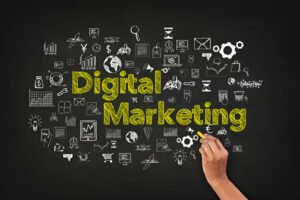Introduction
Digital marketing has transformed how businesses connect with their audiences. Gone are the days when traditional marketing was the only way to reach potential customers. In today’s fast-paced world, digital marketing has become essential for businesses looking to thrive and grow. In this blog learn what is digital marketing from basics.
What is Digital Marketing
Digital marketing encompasses all marketing efforts that use an electronic device or the internet. Businesses leverage digital channels such as search engines, social media, email, and other websites to connect with current and prospective customers.
What Constitutes Digital Marketing?
At its core, digital marketing involves utilizing digital platforms to promote products or services. It includes a variety of strategies and techniques aimed at engaging a target audience online and encouraging them to make a purchase or take some desired action.
Key Components of Digital Marketing
- Search Engine Optimization (SEO)
- Content Marketing
- Social Media Marketing
- Pay-Per-Click (PPC) Advertising
- Email Marketing
- Affiliate Marketing
- Influencer Marketing
For any of the above service visit our website : Serve Tech
Types of Digital Marketing
Search Engine Optimization (SEO)
Importance of SEO: SEO is crucial as it helps businesses rank higher in search engine results, leading to increased visibility and traffic.
On-Page vs. Off-Page SEO: On-page SEO involves optimizing individual web pages to rank higher, while off-page SEO focuses on external factors like backlinks.
Content Marketing
Role of Content in Digital Marketing: High-quality content attracts and engages customers, providing valuable information that can drive conversions.
Strategies for Effective Content Marketing: Creating relevant, consistent content tailored to the target audience’s needs.
Social Media Marketing
Impact of Social Media Platforms: Social media platforms like Facebook, Instagram, and Twitter offer businesses a way to connect with their audience and build brand loyalty.
Building a Social Media Strategy: Developing a strategy involves understanding the target audience, choosing the right platforms, and creating engaging content.
Pay-Per-Click (PPC) Advertising
How PPC Works: PPC involves advertisers paying a fee each time their ad is clicked. It’s a way to buy visits to your site rather than earning them organically.
Benefits of PPC: Immediate traffic, precise targeting, and measurable results.
Email Marketing
Importance of Email Lists: Email lists are valuable assets, allowing businesses to reach a targeted audience directly.
Crafting Effective Email Campaigns: Successful campaigns involve personalized messages, compelling subject lines, and clear calls-to-action.
Affiliate Marketing
How Affiliate Marketing Works: Businesses reward affiliates for bringing in customers through the affiliate’s marketing efforts.
Benefits for Businesses: Cost-effective, expands reach, and leverages the influence of others.
Influencer Marketing
Role of Influencers: Influencers have a large following and can sway their audience’s purchasing decisions.
Strategies for Influencer Partnerships: Finding the right influencers, setting clear objectives, and creating authentic collaborations.
Benefits of Digital Marketing for Businesses
Cost-Effectiveness: Digital marketing is often more affordable than traditional marketing methods, offering a higher return on investment.
Global Reach: Businesses can reach a global audience without geographical limitations.
Targeted Marketing: Digital marketing allows for precise targeting based on demographics, behavior, and interests.
Measurable Results: Tools like Google Analytics provide insights into campaign performance, allowing for adjustments and improvements.
Enhanced Customer Engagement: Interactive content, social media, and personalized marketing foster better customer relationships.
Improved Conversion Rates: Targeted campaigns and optimized content lead to higher conversion rates.
Challenges in Digital Marketing
High Competition: The digital space is crowded, making it challenging to stand out.
Constantly Changing Algorithms: Search engines and social media platforms frequently update their algorithms, affecting visibility and reach.
Maintaining Customer Trust: Building and maintaining trust in a digital environment requires transparency and consistency.
Impact of Digital Marketing on Business Growth
Case Studies: Many businesses have experienced significant growth through digital marketing strategies.
Real-World Examples: Examples include small businesses leveraging SEO to compete with larger companies and brands using social media to increase customer engagement.
Future Trends in Digital Marketing
Artificial Intelligence and Machine Learning: AI and machine learning are transforming how businesses analyze data and personalize marketing efforts.
Voice Search Optimization: With the rise of voice assistants, optimizing for voice search is becoming essential.
Augmented Reality and Virtual Reality: AR and VR provide immersive experiences that can enhance marketing efforts.
Personalization and Customer Experience: Personalization is key to creating memorable customer experiences and driving loyalty.
Conclusion
Digital marketing is a dynamic and powerful tool for businesses of all sizes. It offers numerous benefits, from cost-effectiveness to global reach, and is essential for staying competitive in today’s market. As technology continues to evolve, so will the strategies and tools used in digital marketing, making it an exciting field to watch.







